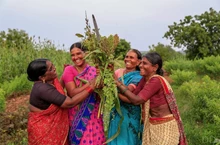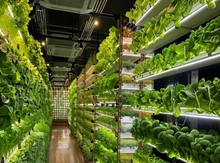
Author of “Basmati Rice: The Natural History Geographical Indication” and trade analyst S. Chandrasekaran said, “The FSSAI decision basically will protect the purity of basmati rice and not allow any dilution, given the geographical indication (GI) tag for it.”
The decision, announced on October 31, will benefit farmers by increasing their returns, while consumers will benefit by being able to eat "pure basmati." Domestic consumers are currently paying more for basmati, with prices ranging from ₹100 to ₹250 per kg.
Another argument against blended basmati sales is that the purity of seeds used by growers is 98%, and what millers buy is of the same quality.
Thailand's premium Jasmine rice is marketed with 98.5 percent purity, whereas Saudi Arabia and the United Kingdom prohibit basmati rice from being sold with more than 7% other varieties mixed in.
According to experts, basmati rice should be protected to preserve its quality, reputation, and other long-grain rice characteristics. "The 2008 order that established the definition of basmati refers to the aroma but does not quantify it. A number of current basmati varieties lack aroma," Chandrasekaran explained.
The Indian Council of Agricultural Research (ICAR) took up a research project on basmati rice aroma but so far there is no methodology available on its aroma, he said.
The FSSAI decision now ensures the quality and authenticity of basmati rice. He also said, "The current price range for basmati in the domestic market is too wide to justify when basmati paddy sells between ₹25 and ₹35 per kg."
The FSSAI decision will raise the cost of compliance for rice millers, while the authority will incur costs for enforcement, particularly for DNA testing. The decision will also govern the basmati market, which has a demand of approximately 4 million tonnes (mt) for exports and 1.5 mt for domestic consumption.











